Lack of period facilities 'could put women off sport'
- Published
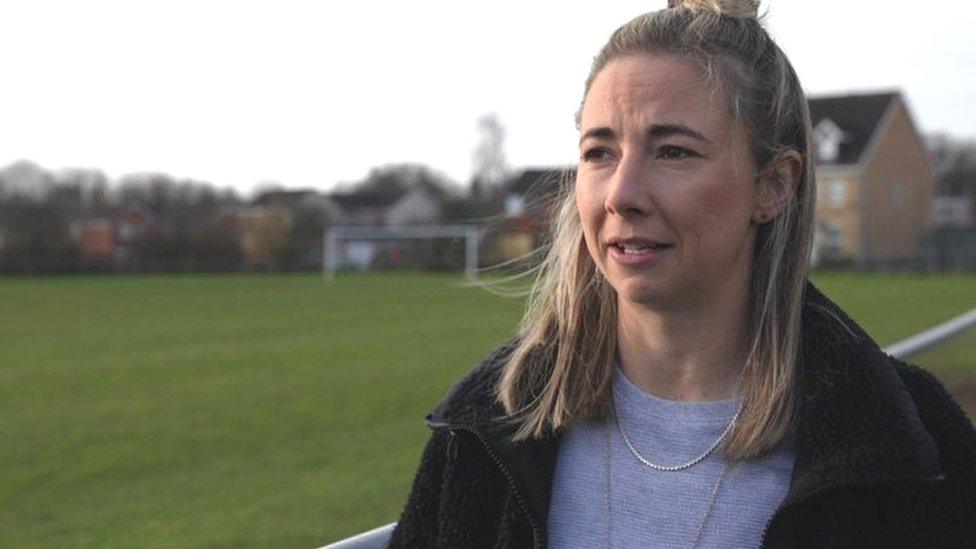
Elinor Snowsill says access to bins, toilets, and toilet paper has been a "pot-luck"
An international rugby player has warned a lack of period facilities is adding "obstacles" to women from participating in sport.
Fly-half Elinor Snowsill says access to bins, toilets, and toilet paper during her career has been "pot-luck".
One expert said the lack of facilities is the result of grassroots and women's sport being seen as lower priority.
The Welsh government said it is committing £24m to developing sport facilities by 2025.
Elinor Snowsill, who has 71 caps for Wales, says she was regularly caught out on her period in the early stages of her career.
"I once had to change my tampon in a kit container on the side of the pitch, where they kept the pads and the balls," she said.
"I was worried one of the male staff members would walk in while I was doing it."
Ms Snowsill said the situation has improved, with the WRU providing support such as period pants, pelvic floor training and cycle tracking for its elite players.
But she added that there's still more to be done.
Some women are choosing not to participate in sport because of a lack of period facilities
"There's still times where we'll travel abroad and there won't be any facilities in the toilet," she said.
Period symptoms can already make it difficult for women to take part in sport, she added.
"We don't need even more obstacles, in the fact that there are no facilities.
"This happens once a month - not once in a while, but 12 times a year."
Grassroots players say the issue is so widespread that it's been "normalised".
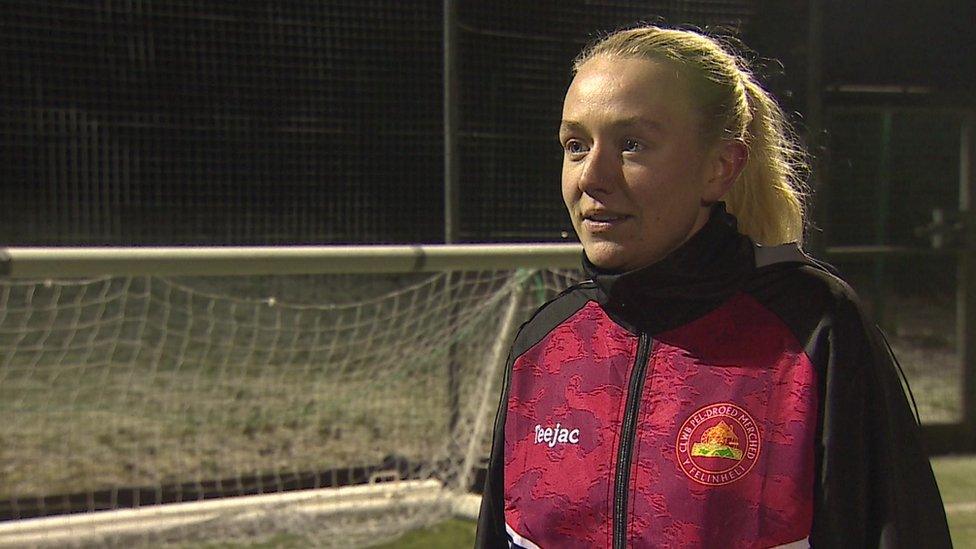
Nel Huws, 23, says periods "really affect" players
Nel Huws, 23, from Clwb Pêl-droed y Felinheli football club, said: "It doesn't even cross my mind sometimes that there are no facilities, because you just become so used to the fact that there aren't any.
"It really affects the way you're able to play."
Fellow player Llio Emyr said the team has travelled to multiple matches to find there are no facilities in the changing rooms.
"No toilet paper, no bins whatsoever to dispose of period products," she said.
"Most of the facilities were made for men at the start, obviously.
"They need to follow what's been done in leisure centres, where there are plenty of facilities."
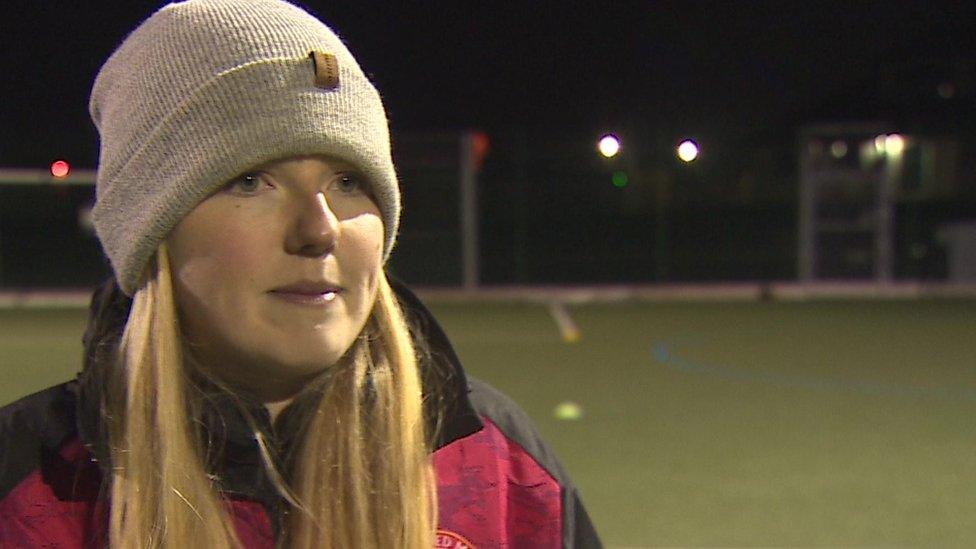
Llio Emyr says the team has travelled to multiple matches to find they didn't have the facilities they needed
The situation could have an "enormous" impact on public health, according to an expert.
Dr Natalie Brown, who researches the menstrual cycle in sport at Swansea University, said: "The reality is it stops girls and women participating in that sport.
"Because of the worry of leaking, or not being able to manage being on their period, or not having access to sanitary bins.
"The knock-on effects from a long-term perspective are actually huge."
It often comes down to funding, she says, especially for grassroots clubs which are more reliant on creating their own funding.
"But also, sometimes it's based on the fact that female sport isn't seen as high profile or as much of a priority compared to the male counterpart to that sport.
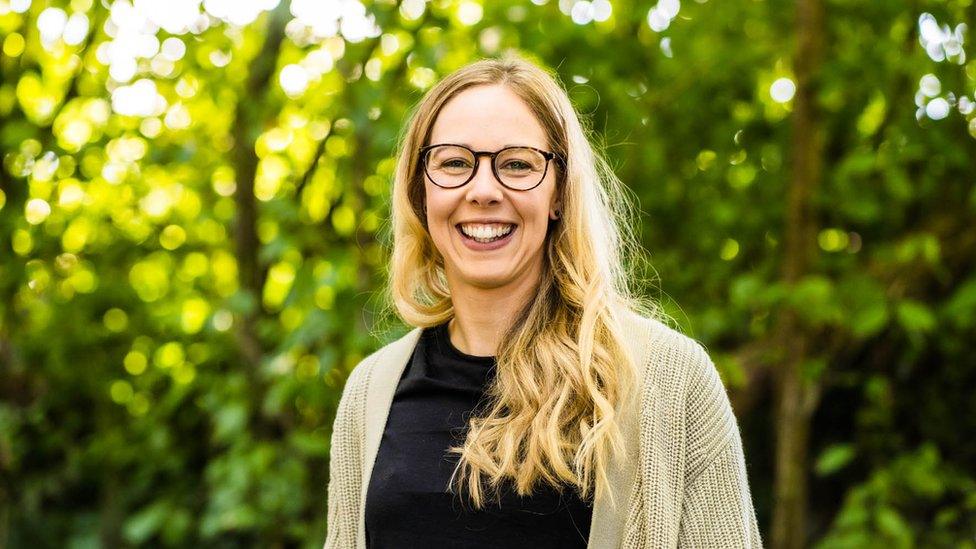
Dr Natalie Brown warned the "knock-on effects" of poor facilities on women in sport could be huge
"The Welsh government has been thinking about its period dignity plan - actually, how can we factor in providing funding, providing facilities for clubs, that are maybe struggling but can see that this is quite a wide issue across Wales, across multiple sports?"
In 2022, 8% of school girls in Wales surveyed by Sport Wales said they would do more sport if they could manage their period better.
According to the body's assistant director, Owen Hathway, ensuring sufficient facilities for women is essential "not just to address the issue of women and girls' participation around their period, but also their participation in general and feeling like they're a part of the sport sector in Wales".
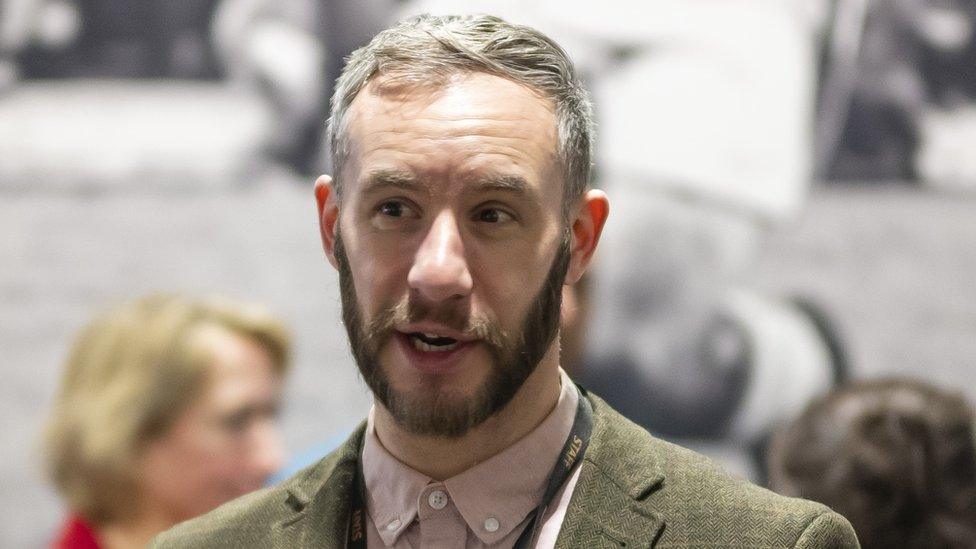
Owen Hathway, director of Sport Wales, said improved facilities would help ensure women feel part of the sports sector
The WRU said it was keen to break down any barriers to female participation in rugby, and would be asking all clubs in Wales about facilities needed for the future.
The Welsh government said: "Since 2018 we have invested around £12m to ensure that children and young people and those on low incomes have access to free period products, as well as committing £24m in capital funding over the next three years to Sport Wales to develop facilities across Wales.
"We are proud of the impact this funding has had and of the work we have done in partnership with local authorities and health boards to disseminate products through our schools, colleges and communities."

GAME CHANGERS: Go behind the scenes with Wales women's rugby team
RUCK STARS: Two of the biggest teams in rugby go head to head

Related topics
- Attribution
- Published18 January 2023

- Published5 October 2022
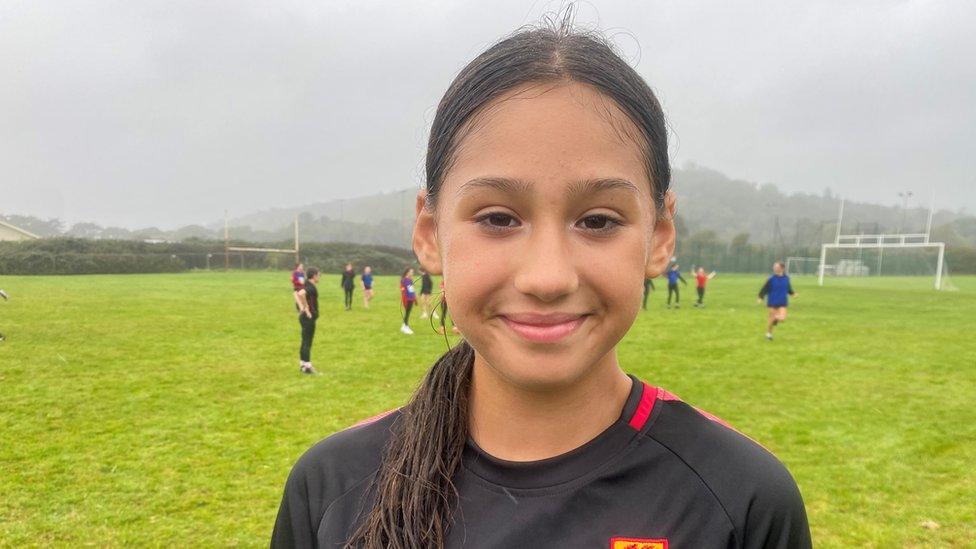
- Published15 July 2022
